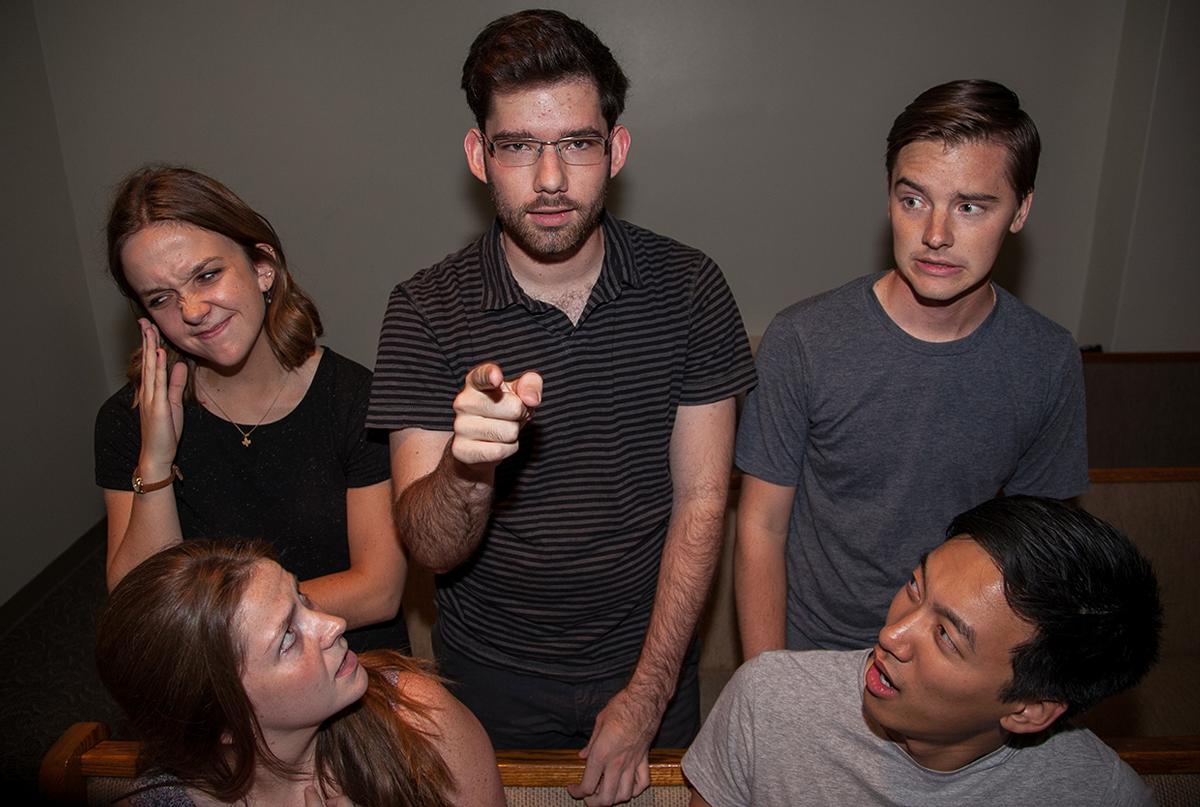
My dad died last semester in a motorcycle accident. In the middle of my golf class, I noticed my phone buzzing and saw that my mom had left me two voicemails. My mom never leaves me two voicemails. I called her back and the brave woman told me the earth-shattering news. A second before I was one person; now I am another. A couple weeks later we had a funeral that was attended by hundreds of people who loved my dad and continued to show their love for my family.
The amount of kindness we received overwhelmed my family during that impossible time.We are exceedingly grateful for everyone that rallied around us and the support we received. But death has a strange effect in our culture, especially among the Christians I know. Suddenly, people did not know what to say to me. Frankly, I did not know what to say to them.
WHEN WORDS FAIL
I think we do not know what to say to people that have lost someone. Especially as Christians, we seem to have some desire to help those who grieve and we try to reach out and heal the hurting. We know something about Jesus taking away pain and death being sort of a good thing. But grief never looks the same. What heals one person, wounds another. I wish I had a surefire way to help those who have been broken. I do not. But I know what helped me, and what I wish would not have been said.
“God has a plan.” This statement is unequivocally true. But when I shake your hand after my father’s memorial service this phrase burns like a branding iron. It points to a large truth, God does have a plan. God had a plan that included my dad dying, but it also includes other things, like saving the world through the work of his son and his church. But my dad’s death is a particular point. In that particular pain, I need support. I need someone to hold my hand and hug me, not force my gaze elsewhere. Jesus wept with Mary and Martha even though he knew Lazarus was coming back.
“You are the man of the house now.” I am actually not sure what this phrase means. I think it may be an exhortation to care for my mom and sister. It also might mean that I am now responsible for my household and should get a job. But I am a kid who just lost his dad. Reminding me of his absence and tasking me with his responsibility is a crushing burden. Better to sit quietly with me while I cry and gently remind me to eat.
Also, my 47-year-old mother has been effectively running our house for her entire adult life. Any quality that would recommend me for the job she has been cultivating for decades. Whatever this phrase means, I hope it does not assert my gender somehow qualifies me to lead, or worse, requires me to.
THE IMPORTANCE OF COMMUNICATION
Some of what was said about my Dad’s death was uncomfortable. Much of it was pleasant and socially appropriate, but only a few things really helped. One of these came from a friend who, though visibly uncomfortable, came up to tell me she did not know what to say but that she, as a fellow member of the body of Christ, saw that I was suffering and was sorry. She hoped she could lessen my burden and support me.
Another came from an email sent by a professor:
“All the words we have to express condolence feel so small compared to your great grief in your father's death. I'm so very sorry, but, of course, feel how short those words fall.
Still, I want to say that you're on my mind and in my prayers. May God strengthen you, even now as you grieve, to continue to confess the forgiveness of sins, the resurrection of the dead, and the life of the world to come.
And may he give you peace.”
Death is too difficult to bear alone. Those who are grieving need help but that help needs personalization. Sometimes sitting in silence with the broken can have incredibly healing effects. Sometimes we need to punch something, dance or stand somewhere high up and yell. The process of grief is confusing for all involved, but with honest communication and graceful attention the pain can often be lessened.







